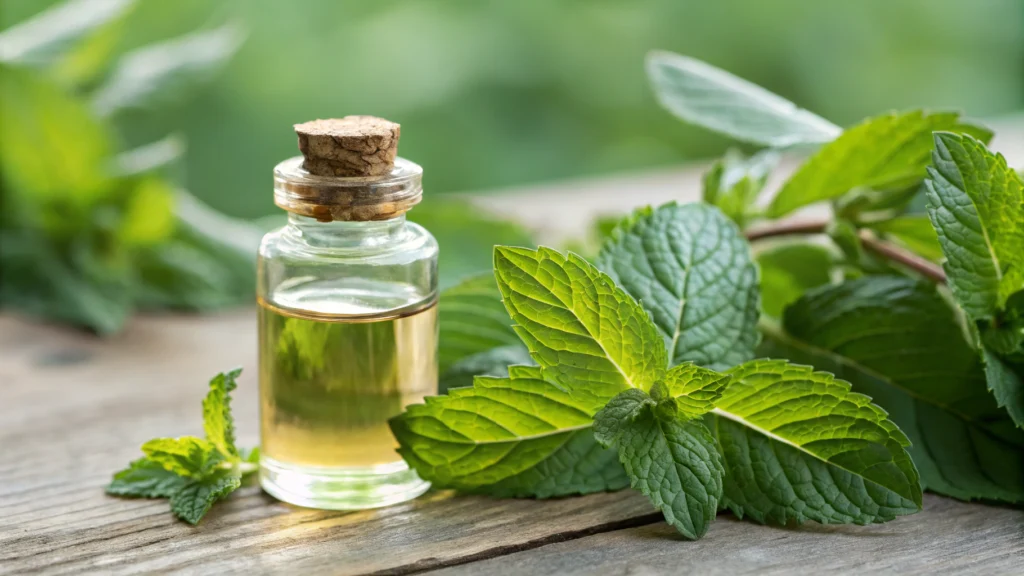Introduction
Mosquitoes are more than just an annoyance. They can carry dangerous diseases like West Nile virus, Zika, malaria, and dengue fever. According to the CDC’s guide on Mosquito Bite Prevention, preventing bites is an essential step in protecting your health. But many people want to avoid chemical repellents. That is where natural mosquito repellent solutions shine. Natural plant-based ingredients can make the outdoors much more enjoyable while minimizing harmful side effects.
In this article, we will dive deep into ten natural ingredients backed by research and tradition that help repel mosquitoes effectively. We will also explore how to use them, their strengths, and what science says about their effectiveness. Following the American Mosquito Control Association’s recommendations on repellents, combining natural remedies with good prevention habits gives you an even stronger shield against bites.
1. Citronella Oil

When you think of natural mosquito repellent, citronella probably comes to mind. Extracted from lemongrass, citronella oil masks the scents that attract mosquitoes. That is why you often see it in outdoor candles and sprays. While candles work in small areas, citronella sprays or diluted oil applications on the skin are far more effective.
How to Use
- Add a few drops of citronella essential oil into a carrier oil like coconut oil.
- Apply it to exposed skin before stepping outside.
- Reapply every one to two hours for best results.
Effectiveness
Studies show citronella can provide protection for up to 30–60 minutes. A controlled trial published in public health journals suggests its effectiveness improves when combined with vanillin (a natural compound from vanilla). Still, it works best for short-term outings, not all-night protection.
2. Lemon Eucalyptus Oil
Lemon eucalyptus oil is one of the few natural options that the CDC recognizes as effective. Derived from the leaves of the lemon-scented gum tree, its active ingredient, p-menthane-3,8-diol (PMD), has strong mosquito-repelling power.
Why It Works
PMD confuses mosquitoes’ scent detection, making it challenging for them to distinguish human skin. In certain studies, lemon eucalyptus oil provided protection on par with low concentrations of DEET.
Usage Tips
- Use a commercial product that contains lemon eucalyptus oil (usually between 30–40%).
- Do not apply on children younger than 3 years old.
- Reapply every 2–6 hours depending on activity level.
3. Lavender
Lavender is popular for relaxation, but it also doubles as a natural mosquito repellent. Its pleasant fragrance is calming to humans but irritating to mosquitoes.
How Lavender Repels Mosquitoes
The compounds linalool and linalyl acetate interfere with mosquitoes’ ability to locate their prey. This makes them less likely to land and bite.
How to Apply
- Crush fresh lavender flowers and rub them on exposed skin.
- Use lavender essential oil diluted with a gentle carrier oil.
- Place lavender sachets near windows or under your pillow.
Extra Benefit
Since lavender promotes relaxation, using it as part of your natural mosquito repellent routine can also support better sleep.
4. Peppermint Oil

Peppermint oil’s cooling sensation makes it a refreshing choice for repelling insects. Mosquitoes dislike its strong scent and menthol component, giving you a two-in-one benefit: relief from itching and protection from bites.
Key Properties
- Contains menthol, which irritates insect senses.
- Soothes skin irritation if already bitten.
- Provides a crisp, refreshing aroma that masks body scent.
Application
Mix 10 drops of peppermint essential oil with two tablespoons of carrier oil. Apply sparingly since peppermint can feel strong on sensitive skin.
5. Catnip
Catnip is famous for attracting cats, but it is also a surprisingly powerful mosquito repellent. The active ingredient, nepetalactone, has been reported to be up to ten times more effective than DEET in some studies.
How to Use
- Grow catnip in your garden to ward off nearby mosquitoes.
- Use catnip essential oil mixed with carrier oils.
- Create a spray by boiling fresh catnip leaves, straining, and applying the cooled liquid.
Cautions
This plant is safe, but using essential oil directly on the skin can sometimes cause irritation. Always patch test before covering large areas.
6. Tea Tree Oil
Tea tree oil has antimicrobial properties, making it effective in healing minor cuts and soothing skin. It also functions as a natural mosquito repellent. The strong aroma is unpleasant to mosquitoes while providing skin benefits.
Application
Mix a few drops of tea tree oil into lotion or carrier oil. Apply before outdoor activity. Since tea tree oil is potent, keep the concentration low to avoid drying out your skin.
7. Neem Oil
Neem oil, extracted from the seeds of the neem tree, is widely used in Ayurvedic medicine. Studies indicate neem oil provides a significant deterrent effect against mosquitoes in tropical regions.
How It Works
Neem disrupts mosquitoes’ growth and feeding patterns. Applying oil directly on the skin may reduce bites for several hours, although its strong smell may be unpleasant for some people.
Usage
Mix neem oil with coconut oil before applying. Some commercial eco-friendly repellents already include neem as a key ingredient.
8. Basil
Fresh basil is a favorite kitchen herb, but it also provides powerful mosquito-fighting properties. Basil contains volatile compounds like estragole, citronellol, and limonene, which naturally repel mosquitoes.
Household Use
- Plant basil in pots and place them near entryways.
- Brew basil tea and spray cooled liquid on your skin or clothing.
- Use basil essential oil blends in diffusers.
9. Garlic
Garlic’s sulfur compounds make it undesirable for mosquitoes. While the idea of eating garlic to repel mosquitoes is debated, applying garlic-infused sprays may help keep them at a distance.
Methods
- Mash garlic cloves and let them sit in mineral oil, then dilute with water and spray outdoors.
- Plant garlic in your garden for added protection.
Note
Some people may find garlic’s strong smell overwhelming, so test before using heavily.
10. Thyme
Thyme has shown high levels of mosquito repellency in both smoke and oil form. Burning thyme leaves in an outdoor fire pit provides up to 85% protection, according to field studies.
Practical Uses
- Apply thyme oil diluted in carrier oil to skin.
- Throw fresh thyme sprigs on a campfire to release repellent smoke.
Safety Tips and Best Practices
While these natural options are useful, keep these guidelines in mind:
- Always dilute essential oils before direct skin application.
- Reapply every couple of hours, since natural oils evaporate quickly.
- Do not use undiluted oils on children or sensitive skin.
The CDC and the American Mosquito Control Association note that consistent reapplication is crucial. Pair natural mosquito repellent with protective clothing and screens for maximum protection.
Conclusion
Nature provides us with safe and powerful alternatives to chemical repellents. Citronella, lemon eucalyptus, lavender, peppermint, catnip, tea tree, neem, basil, garlic, and thyme all show meaningful ways to reduce bites. While they are not always as long-lasting as chemical repellents, when applied properly, they allow you to enjoy outdoor activities with confidence.
By combining these natural mosquito repellent solutions with smart habits recommended by the CDC—like wearing long sleeves, using screens, and eliminating standing water—you create a layered defense that ensures both safety and peace of mind.




GIPHY App Key not set. Please check settings